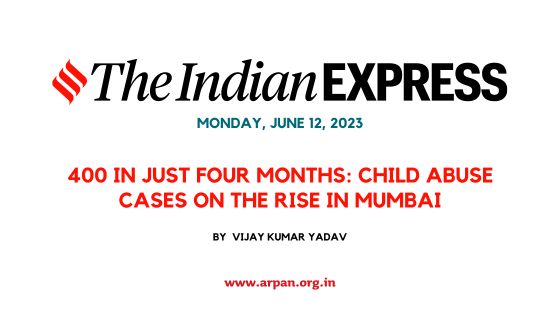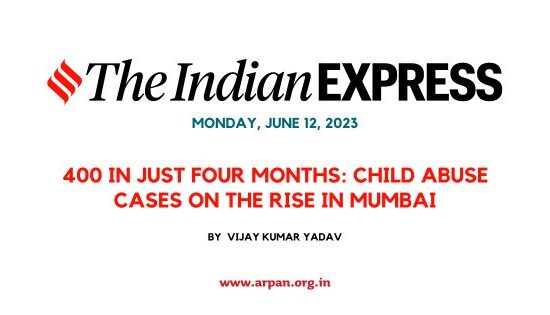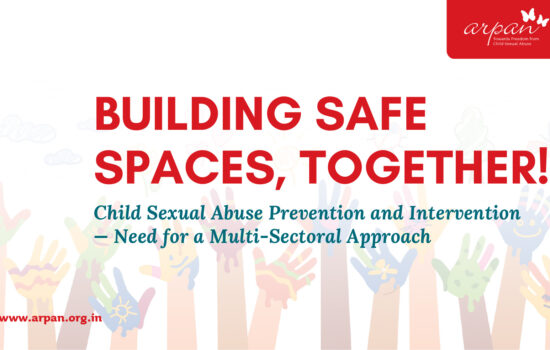A shocking story unfolded from New Delhi on Thursday. Shortly after the gruesome murder of seven-year-old Pradhyuman Thakur at Ryan International school, a five-year-old in another school was accused of a horrific sexual crime. The boy allegedly sexually assaulted a four-year-old girl, his classmate, by inserting his fingers and a pencil into her private parts.
In a statement to NDTV, the four-year-old girl’s mother shared the painful details of discovering what had happened to their little girl, and her physical injuries. Unsurprisingly, she called for the accused child to be rusticated and for the school to take responsibility of the crime.
However, is a five-year-old really capable of sexual assault?
Five experts say that the issue has much more to it than meets the eye.
Is a five-year-old capable of such behavior?
Experts unanimously believe that a five-year-old is not capable of deliberate sexual assault.
Vidya Reddy of Tulir – Centre for Prevention and Healing Child Sexual Abuse, a Chennai-based NGO, says, “A five-year-old child is unlikely to do something like this unless he/she is exposed to similar behaviour.”
Dr Ann Simi John, a clinical child psychologist at Max Hospital in Gurugram, opined, “Unless a child has looked at pornographic videos or been exposed to some kind of abuse himself, it is difficult to believe that [he] would try out something like this because sexual behaviour is not an important need at this age,” she told NDTV.
Vidya elaborates that such behaviour by minors can be broadly divided into four categories: inappropriate, sexually reactive, sexually harmful, and sexually aggressive.
To elucidate, think of inappropriate behaviour as when young boys have peeing contests, or pull girls’ clothes. While it is inappropriate, they do not act with a sexual intent. An example of sexually aggressive behaviour was exhibited by the minor accused in Jyoti Singh’s gangrape on December 16, 2012. Meanwhile the minors who systematically sodomised a class 6 student after a fight in 2015 behaved in a sexually harmful manner.
From what Vidya has learnt from media reports in this case, she concludes that the five-year-old boy in here was exhibiting the sexually reactive behaviour, where he was acting and re-enacting an experience or something he witnessed.
Self-discovery and peer touching
Research indicates in the preschool age (0-5 years), it is normal for children to touch their genitals, show them to others, being curious about bodily functions, even putting their fingers inside their genital openings. Peer touching therefore, is normal behaviour for children and their peers when they experience curiosity and may touch each other’s genitals.
Pooja Taparia, founder and CEO of Arpan, an NGO working on the issue of child sexual abuse, has observed peer touching to be quite common in children of the above age group.
“The media calling it rape or sexual assault is stretching what seems to have happened between the two children,” she says.
Kushi, of Enfold, an NGO working with survivors of child sexual abuse and their families, also believes that this could be a case of peer touching gone wrong. So does Ameeta Wattal principal of Springdales school in Delhi, who told NDTV that such curiosity and behaviour among small children is regularly seen by pediatricians as well.
However, Vidya has a different viewpoint, because a foreign object like a pencil was used. “In my opinion, there seems to be a clear co-relation between being exposed to something, reacting and acting it out,” she says.
Pooja warns however that some peer touching should be regarded with caution, “For instance, a 16-year-old touching a 10-year-old is not peer-touching and could be inappropriate.”
How far is the school responsible?
Since the boy is under seven years of age, he cannot be booked for the crime, as per sections 82 and 83 of the IPC.
The four-year-old girl’s mother, in her statement, has made several demands from the school, including rustication of the accused child. She has also claimed that both times the boy allegedly assaulted her daughter, they were alone and unsupervised.
Here, Ameeta says, “We are running schools, not jails and detention centres. Children feel insecure when they see too many guards hanging around or monitors watching them,” she says. “It is very important however that there be teachers in every classroom whenever small children are together. There should also be helpers in the toilets when there are small children,” she adds.
Kushi agrees. However, she is not in favour of CCTV cameras in every nook and cranny because the kids would not feel free.
She also maintains that the school should take responsibility, if not from the point of view of criminal proceedings but at least in acknowledging the lapses in their system which allowed this incident to happen without anyone’s knowledge.
Empowering children
Ultimately, experts say that children must be empowered and made aware of their own bodies and taught to exercise their agency.
“Parents can protect children from inappropriate content to some extent. Instead, children should be talked to about safe and unsafe touch and given age-appropriate personal safety education to avoid untoward incidents and to ensure that they can seek help from an adult when needed,” Pooja asserts.
Both children in this case should be dealt with sensitively, experts feel. Vidya argues that counselling may not be enough.
“In case of minors accused of sexual crimes, we have observed is while counselling attempts to address the emotional and psychological aspects, it glosses over the sexually offending aspect of their behaviour. For instance, telling this five-year-old that hurting someone is wrong, is not enough. He has to unlearn the sexually offending aspect of his behaviour, and relearn appropriate sexual expression,” she explains.
Further, Kushi says that it is important for both children to get closure, and the accused child’s rustication may not be the best way forward.
“The boy is only 5 and we should treat him like a child, not a criminal. Ensure that he does not repeat such actions and when the children are ready, they can talk to each other and perhaps. He can apologise to her for hurting her. If you just label him as an offender now, it might make him more likely to offend in the future as well,” she says.
Source: The News Minute












